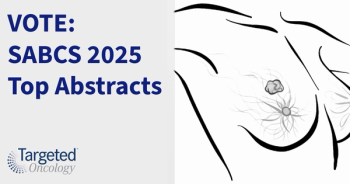
Ramucirumab Granted Priority Review for Advanced Gastric Cancer
The FDA has assigned a priority review designation to ramucirumab (IMC-1121B) as a second-line treatment for patients with advanced gastric cancer.
Charles Fuchs, MD, MPH
The FDA has assigned a priority review designation to ramucirumab (IMC-1121B) as a second-line treatment for patients with advanced gastric cancer. As part of this program, the agency plans to take action on the drug's application within 6 months instead of the 10 months it would have anticipated under standard review, placing a decision date in early 2014.
The granting of a priority review was based on the phase III REGARD study in which ramucirumab, a novel monoclonal antibody that targets VEGFR-2, significantly prolonged survival in patients with advanced gastric or gastroesophageal junction (GEJ) adenocarcinoma following progression on first-line therapy. The survival advantage experienced by patients in this trial was indicated as the first to be elicited by a single-agent biological treatment in this setting.
"We are very pleased that the FDA has granted Priority Review to ramucirumab in advanced gastric cancer, as patients with this difficult-to-treat disease typically have a poor prognosis and limited treatment options," said Richard Gaynor, MD, in a statement. "If approved, ramucirumab will be the first FDA-approved therapy for patients in this setting. Overall, stomach cancer is the second leading cause of cancer death globally and remains an area of high unmet need." Gaynor is the vice president of Product Development and Medical Affairs for Lilly Oncology, the company that is developing ramucirumab.
Reactive human stomach cells, that are non-malignant.Source: Dr. Lance Liotta Laboratory, The Web site of the National Cancer Institute (http://www.cancer.gov).
In the REGARD study, 355 patients with advanced gastric cancer or GEJ adenocarcinoma were randomized in a 2:1 ratio to receive best supportive care plus either ramucirumab (n=238) or placebo (n=117). In the study, ramucirumab was administered intravenously every 2 weeks at 8 mg/kg for a median duration of 8 weeks. The primary endpoint was overall survival (OS). Secondary endpoints included progression-free survival (PFS), overall response rate (ORR), and safety.
The median OS in the ramucirumab arm was 5.2 months compared to 3.8 months for patients on the placebo arm (hazard ratio [HR] = 0.776 (95% CI, 0.603-0.998;P= 0.047). The median PFS was 2.1 months compared to 1.3 months, for ramucirumab and placebo, respectively (HR = 0.483; 95% CI, 0.376-0.620;P< 0.0001). ORR was 3.4% for ramucirumab and 2.6% for placebo, and disease control rates were 48.7% and 23.1%, respectively.
Approximately 75% of patients in the ramucirumab arm were diagnosed with advanced gastric cancer. Following the discontinuation of treatment, 32% of patients in the ramucirumab arm went on to receive chemotherapy compared with approximately 39% of those on placebo.
“What we found is that the patients who received the antibody had a significant improvement in their survival as well as reducing the rate of cancer progression,” the lead author of the REGARD trial, Charles Fuchs, MD, MPH, said in a statement when the results were published in theLancet. “The results were encouraging and we hope that the drug will ultimately be approved for routine use for patients with stomach cancer.” Fuchs is the director of the Center for Gastrointestinal Cancer at the Dana-Farber Cancer Institute.
Adverse events of any grade were similar between the two groups at 94% compared to 88% for ramucirumab and placebo, respectively. Grade 3 events occurred in 57% of patients in the investigational arm compared to 58% in the placebo arm.
Hypertension was more common in the ramucirumab arm (16% versus 8%); however, grade 3 hypertension occurred in only 3 patients and no grade 4 hypertension manifested in the trial. In total, five deaths occurred in the investigational arm and two occurred in the placebo group.
“It’s really impressive that an antibody which had very little side effects could provide a survival benefit,” noted Fuchs.
In addition to the single-agent administration of ramucirumab, a combination strategy with chemotherapy is under investigation in the phase III RAINBOW trial. In this trial, ramucirumab plus paclitaxel is being compared to paclitaxel and placebo for patients with advanced gastric cancer or GEJ adenocarcinoma whose disease progressed on, or did not respond to, initial therapy. This trial began enrollment in 2010 and has accrued 665 patients.
Fuchs CS, Tomasek J, Yong CJ, et al. Ramucirumab monotherapy for previously treated advanced gastric or gastro-oesophageal junction adenocarcinoma (REGARD): an international, randomised, multicentre, placebo-controlled, phase 3 trial. [published online ahead of print October 3, 2013]Lancet. doi:10.1016/S0140-6736(13)61719-5.









































